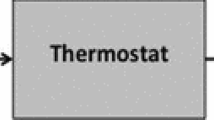Abstract
Saul Kripke has proposed an argument to show that there is a serious problem with many computational accounts of physical systems and with functionalist theories in the philosophy of mind. The problem with computational accounts is roughly that they provide no noncircular way to maintain that any particular function with an infinite domain is realized by any physical system, and functionalism has the similar problem because of the character of the functional systems that are supposed to be realized by organisms. This paper shows that the standard account of what it is for a physical system to compute a function can avoid Kripke's criticisms without being reduced to circularity; a very minor and natural elaboration of the standard account suffices to save both functionalist theories and computational accounts generally.
Similar content being viewed by others
Author information
Authors and Affiliations
Additional information
I am indebted to Saul Kripke for several helpful discussions of this material. I also benefitted from the discussions following the presentations of earlier versions of this paper at the University of Pennsylvania (February, 1984), UCLA (June, 1984), and Rutgers University (December, 1984), and particularly from my discussions with Elizabeth Spelke and Scott Weinstein.
Rights and permissions
About this article
Cite this article
Stabler, E.P. Kripke on functionalism and automata. Synthese 70, 1–22 (1987). https://doi.org/10.1007/BF00414025
Issue Date:
DOI: https://doi.org/10.1007/BF00414025



